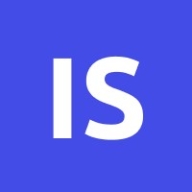

Find out what your peers are saying about Cisco, Hewlett Packard Enterprise, Fortinet and others in Network Access Control (NAC).
| Product | Market Share (%) |
|---|---|
| Aruba ClearPass | 23.6% |
| Cisco Identity Services Engine (ISE) | 24.2% |
| Fortinet FortiNAC | 17.9% |
| Other | 34.30000000000001% |
| Product | Market Share (%) |
|---|---|
| UserLock | 1.1% |
| Microsoft Entra ID | 12.9% |
| Cisco Duo | 8.1% |
| Other | 77.9% |

| Company Size | Count |
|---|---|
| Small Business | 44 |
| Midsize Enterprise | 25 |
| Large Enterprise | 32 |
Aruba ClearPass is a network access control (NAC) solution that provides a range of security and access management capabilities for wired, wireless, and VPN networks. ClearPass enables organizations to secure their networks and devices, enforce security policies, and provide secure access to network resources.
Aruba ClearPass Features
Aruba ClearPass has many valuable key features. Some of the most useful ones include:
Aruba ClearPass Benefits
There are many benefits to implementing Aruba ClearPass. Some of the biggest advantages the solution offers include:
Reviews from Real Users
Aruba ClearPass is a solution that stands out when compared to many of its competitors. Some of its major advantages are that it’s easy to use, has a valuable Guest Captive Portal and virtual security enforcement, and has a good web dashboard and policy manager.
“It is easy to use and more integrated with the Aruba wireless networks,” says Muhammad N., Network & Information Security Engineer at a healthcare company.
Ammar F., Head of IT at Hubtech, explains, “What I like most about Aruba ClearPass is that it has the best enforcement feature for the network. I also like its Guest Captive Portal and virtual security enforcement features, but the virtual security enforcement feature is still under testing by my company. Aruba ClearPass also has a wonderful UI which I find valuable."
Another PeerSpot reviewer mentions, "The web dashboard and the policy manager are very intuitive and very easy for the engineers to use."
UserLock provides advanced Identity & Access Management (IAM) using Microsoft Active Directory, protecting hybrid and remote environments.
UserLock enhances security with multi-factor authentication, single sign-on, and context-aware access controls, tailored for Active Directory environments without requiring complex identity migrations. It offers real-time visibility for IT teams to monitor and control user sessions, effectively preventing account sharing and unauthorized access. With detailed auditing, UserLock supports compliance with standards like ISO 27001, HIPAA, and NIS2.
What features make UserLock valuable?UserLock is implemented in various industries to address specific demands for secure and seamless access management. In finance, it safeguards sensitive data through rigorous login authentication. Healthcare organizations use UserLock to maintain strict compliance with patient information security standards, while educational institutions benefit from its ability to manage and track access in complex network environments. With its flexible integration, UserLock supports industry-specific security protocols and operational needs.
We monitor all Network Access Control (NAC) reviews to prevent fraudulent reviews and keep review quality high. We do not post reviews by company employees or direct competitors. We validate each review for authenticity via cross-reference with LinkedIn, and personal follow-up with the reviewer when necessary.